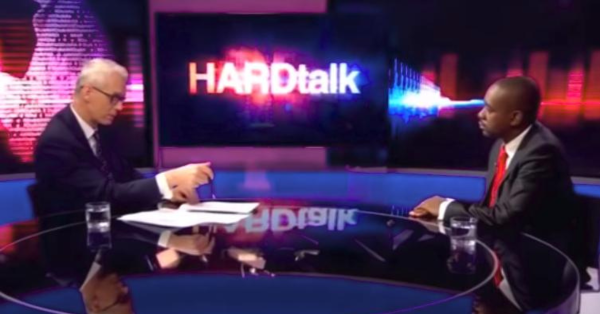 |
| A Christmas Carol movie |
Book: A Christmas Carol
Author: Charles Dickens
Publisher: Chapman and Hall (1843)
Christmas flares up colour, vista and melody across every nook and cranny of town and parish.
It is the climax of the calendar with a fusing function for different entities – picturesque family reunions, devotional awakenings, capitalist windfalls and also another excuse to drown in Delta cisterns for the guzzling community.
Not so with Charles Dickens. Christmas, for the 31-year devotee of the poor people, was a public podium to debunk capitalism. It was a framing point on which he set out to awaken society’s conscience on the perils of unequal development.
As the festive bells of Christmas, 1843, tolled across Victorian London, the author of Oliver Twist, and Nicholas Nickebly once again tapped into his element to convict his people on the contrasting realities of poverty and affluence.
Noting the current agitation of the Occupy Movement and similar-themed movements against manufactured poverty worldwide, Dickens’ revulsion against capitalism has a legitimate claim to posterity. A Christmas Carol is a fair first step to Dickensian hindsight in the wake of festive moods.
Charles Dickens and the Blacking Factory (2011) and Dickens and the Workhouse: Oliver Twist and the London Poor (2012) are recent examples of how Dickens still throws his weight around in the spheres of literature and philanthropy.
Capitalism on Trial
It is the high tide of industrialisation in Victorian England. Poverty, suffering, paltry wages, maltreatment and brutality are staplefare at the base of the class pyramid. Instruments for setting the agenda are exclusively in the hands of the rich and powerful, hence industrial and financial progress are being foregrounded at the expense of the aspirations of the poor.
Dickens, who had harrowing experiences of poverty, chiefly by his stint in the blacking factory following his father’s imprisonment over debt, mans the fort to proclaim social justice with a beautiful and unsettling novella entitled A Christmas Carol.
The novella opens with Dickens’ startling preface: “I have endeavoured in this Ghostly little book, to raise the Ghost of an Idea, which shall not put my readers out of humour with themselves, with each other, with the season, or with me. May it haunt their houses pleasantly, and no one wish to lay it.”
The press was awash with glowing reviews with one journal flighting the endorsement: “It is a tale to make the reader laugh and cry — to open his hands, and open his heart to charity even toward the uncharitable.”
Set on Christmas Eve, the book revolves around the transformation of a miserly capitalist Ebenezer Scrooge after a supernatural visitation. Scrooge who is always saving “a penny for a rainy day” gets convicted after the series of spectral visitations that love and friendship are incomparably more important than amassing a fortune.
The captivating narrative walks through the injustice of the capitalist system whereby money is coffered for a kind of statistical pride whereas the workers who toil for it are condemned to grim poverty.
The book is an indictment on a system that priorities money over people and boasts about wealth which is interpreted in elitist conventions but is not accessible to the people. It implicitly questions the meaning of wealth.
Scrooge, whose name is now a popular variant for miser, retaliates against Christmas wishes by his poorer nephew: “Merry Christmas! What right have you to be merry? What reason have you to be merry? You’re poor enough.” To this the nephew merrily answers: “What right have you to be dismal? What reason have you to be morose? You’re rich enough.”
What is Wealth, Anyway?
Ironically, Scrooge is not better off for all his money, as he heaps it up while enduring cold, ascetic isolation refusing to open his heart to anyone. His much poorer clerk Bob Cratchit heads a happy family, despite virtually leaving on crumps from his boss’s coffers and failing to avoid most modest necessities.
The meaning of wealth is an age-old concern which has also excited inquisitive contemporary artists such as Oliver Mtukudzi. In Mupfumi Ndiani, Mtukudzi rhetorically asks who is richer the one who has health or the one who has wealth. Billy Graham concurs in his evangelical capacity: “When wealth is lost, nothing is lost, when health is lost, something is lost, when character is lost, everything is lost.”
Many people across all generations, like Scrooge, begrudge themselves of their health and are averse to the claims of character in the insatiable quest for wealth. A wise doctor on Dove Television observes at the outset of his daily health programme that some sell their health to get wealth and, after the wealth comes their way, sell the wealth to buy back their health.
Such are the target converts of Dickens’ novella, as the novella bristles with unrelenting satire on the capitalist establishment represented by Ebenezer Scrooge, after the tenor of the biblical dictum which argues the case for a dry morsel with peace and contentment and a feast in the midst of strife.
Christmas Past, Present and to Come
Of the five ghosts that invoke the residues of consciences inhering in the hardened heart of Scrooge is Marley, his former business partner. Marley warns Scrooge of the eternal damnation which awaits him on the other side of the dispensation if he does not change from his miserly ways.
There is an interesting coincidence between this Dickensian creation and the latter activist, Robert Nesta Marley, probably Jamaica’s foremost export to date.
The moving simplicity and camaraderie of “I remember when we used to sit/ In the government yard in Trenchtown/ Oba, ob-serving the hypocrites/ As they would mingle with the good people we meet” by the eccentric Wailers frontman, cementing his solidarity with the poor against the powerful and refusing to efface his past on the threshold of a great future concurs with Dickens.
Marley’s visitation with a foreboding message about the suffering to come if Scrooge does not soften his heart to the poor foreruns successive by the Ghost of Christmas Past, the Ghost of Christmas Present and the Ghost of Christmas to Come who reveal to him scenes from his past, present and future. Scrooge’s hearts melt after witnessing the gallery of his own life, chiefly the better nature of his younger days which he had quenched in the pressure of his material pursuits.
The book champions the cause of that section of society where, as Afro-American abolitionist and social reformer Fredrick Douglas once said, justice is denied, poverty is enforced and the underclass is made to feel that society is an organized conspiracy to oppress, rob and degrade them.
Excess Population
Two charity workers approach Scrooge and explain “it is more than usually desirable that we should make some slight provision for the Poor and destitute, who suffer greatly at the present time. Many thousands are in want of common necessaries; hundreds of thousands are in want of common comforts.
Loath to thaw his miserly grip on his purse strings Scrooge answers whether the prisons and the poor workhouses are still functional or the Treadmill and the Poor Law are still in force to which the gentlemen answer in the affirmative.
Scrooge feigns relief that they are still in force and that he was afraid that something had hindered their operation. The problem is still rife whereby society does not treat the poor on the same level but as an anathema and a liability to be barred from daily social intercourse with the comfortable.
The charity workers explains that a few benevolent individuals are endeavouring to raise the poor a fund for buying food and drink under the impression that workhouses and prisons can barely furnish Christian cheer of mind or body at a time when “Want is keenly felt, and Abundance rejoices.”
Scrooge shuts up his heart against them and sends them off with the short shrift: “I don’t make merry myself at Christmas and I can’t afford to make idle people merry. I help to support the establishments I have mentioned – they cost enough; and those who are badly off must go there.”
The duo protest that most people would rather die than be bundled away to cold, dark and life-threatening prisons and union workhouses to which the rehearsed capitalist answers that it is better for the poor to die and relieve the earth of excess population.
“Nothing troubles the secret elite powers quite so much as the world’s growing population. Their goal is to reduce this number to a billion—and by any means possible: wars, famine, epidemics, disease and vaccines that make women infertile,” writes conspiracy theorist Benjamin Seiler.
Dickens was certainly ahead of his time as this conspiracy, bar the fluctuating authenticity of conspiracy theories, is still staplefare discourse today. Only that it is draped in the language of human rights and other diplomatic fallacies.
Consider the way Western powers want to make abortion and alleged gay rights illegal agenda. The capitalists want living space and, as wars require more legitimacy and are often foiled by multi-lateral bureaucratic red tape, these population control blueprints loom into operation.
A recent evangelically-themed documentary, entitled “180: Changing the Heart of a Nation” by Ray Comfort landed the producer in the line of fire for equating abortion in America with the Jewish Holocaust. However, one cannot gainsay the authenticity of the claim considering the statistics of 53, 380, 843 American victims abortion as juxtaposed to international 11, 000, 000 victims on the Nazi, including 6, 000, 000 Jews, in pursuit of Living Space for the supreme breeds.
A Force for Posterity
Literature is a strategic dumpsite for coming to terms with a period in time. However, great literature does not only belong to an age but posterity also. An appraisal in Penguin Readers says of this Dickensian masterpiece: “Its moral, which still applies today, is that a change of heart is needed among those who are well-off regarding the less fortunate, and that there is no better season for it to take place than Christmas.”
A recent exchange I had with Llyod Tevedzai, a Zimpraise vocalist, on the sidelines of a charity fundraiser reminded another major concern in Christmas Carol, that is, being transformed at heart and making charity an all-round initiative not an occasional cosmetic show.
“We have a situation where churches are focused on their members only and charity is considered to be a Christmas event where congregants visit already established charities.
“There are already people out there who are destitute of basic amenities and deserve our help as the Body of Christ. Love must not be confined to our families and denominational compartments. It is the essence of Christianity,” he said.
Dickens’ keen sense of social justice also drove him to denounce slavery on his famous trip to the United States: “Shall we cry shame on the brutality of those who hamstring cattle and spare the lights of Freedom upon earth who notch the ears of men and women, cut pleasant posies in the shrinking flesh, learn to write with pens of redhot iron on the human face, rack their poetic fancies for liveries of mutilation which their slaves shall wear for life and carry to the grave?”
There is no better time than the present to introspect on the problem of unequal development and commit to charity. Justice and charity are the two arms of love whose embrace the poor and forgotten of society have been yearning for to no avail.


